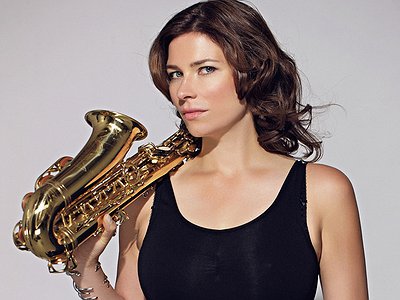Derek Bailey defined improvising as the search for material which is endlessly transformable. Regardless of whether or not you agree with his perspective, what kind of materials have turned to be particularly transformable and stimulating for you?
I agree, I guess I will search all my life, as long as I live. The subjects to material is changing throughout the years, depending on what is important for me at that moment in life or at that very moment on stage.
Purportedly, John Stevens of the Spontaneous Music Ensemble had two basic rules to playing in his ensemble: (1) If you can't hear another musician, you're playing too loud, and (2) if the music you're producing doesn't regularly relate to what you're hearing others create, why be in the group. What's your perspective on this statement and how, more generally, does playing in a group compare to a solo situation?
Totally true. In jazz I think people should play less. Less is more. Action and reaction. If a musician doesn’t have his ears open all the time it’s getting very boring very quickly, no matter if it’s a jazz concert or a DJ gig. Ears open and seeing how you can contribute to the whole thing.
With more and more musicians creating than ever and more, what does this mean for you as an artist in terms of originality? What are some of the areas where you currently see the greatest potential for originality and who are some of the artists and communities that you find inspiring in this regard?
Electronic music has so many worlds which still have to be discovered. But I think music can be great without being original at first priority. If music is original it can be so ugly that no one wants to hear it. Some composers tend to be very rational in order to create something new and as a result, humor and feeling are missing. Also, people are more or less original in periods. There are people who have been original a lot like Miles Davis or George Clinton. In my eyes, a good tune can be good without having originality as a first quality but it’s good if it’s really catchy, funny or touching, or placed in a certain context. And then it also becomes original but not for the sake of being original.
What constitutes a good live performance in your opinion and what’s your approach to performing on stage? How do an improvisation and the recording of this improvisation compare?
On a recording I personally want to hear a perfect solo while live I want to hear a journey which takes place in that moment. Live I really want to connect with my audience as well.
Listening is also an active, rather than just a passive process. How do you see the role of the listener in the musical communication process?
Well, it depends. I don’t agree, I would say, with the idea that most people are not listening actively. The real music listeners or musicians listen differently, either very passionated or analytical or a mix of it. I don’t see how a listener is communicating.
How do you see the relationship between music and other forms of art – painting, video art and cinema most importantly - and in how far, do you feel, does music relate to other senses than hearing alone?
In pop music seeing and hearing is very connected. Also, since music is audio, there’s a lot of space left for the imagination and that’s a big part of the beauty of it. You put some music on and have your own cinema in your mind. Especially with instrumental music. Sometimes vocal music irritates me because of how literal it is. Instrumental music leaves more to the imagination and animates my brain cells more, so I get more head cinema.
Reaching audiences usually involves reaching out to the press and possibly working with a PR company. What's your perspective on the promo system? In which way do music journalism and PR companies change the way music is perceived by the public?
PR is necessary and since I cannot reach out in person to each and every listener I am happy this system exists! You have to have a good promoter though, otherwise more damage can be done than that it helps.
Do you have a musical vision that you haven't been able to realise for technical or financial reasons – or an idea of what music itself could be beyond its current form?
No, I just finished a project I’ve been working on for a long time, the funk album I always wanted to make. A musician should always go for it and find ways to realize it, even if you have to bring sacrifices or find resources. It requires a lot of focus though. If you have strong ideas you have to get them out!



